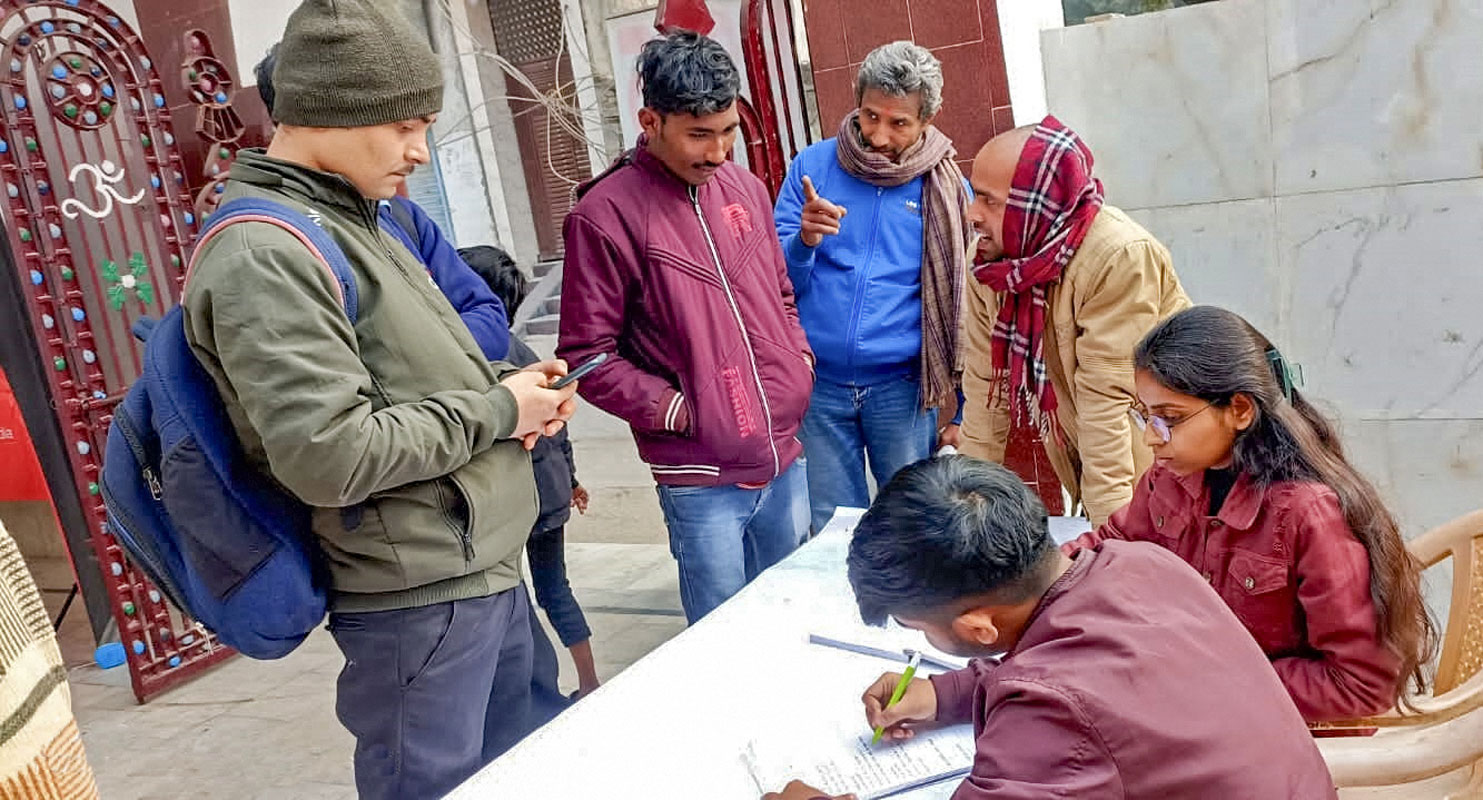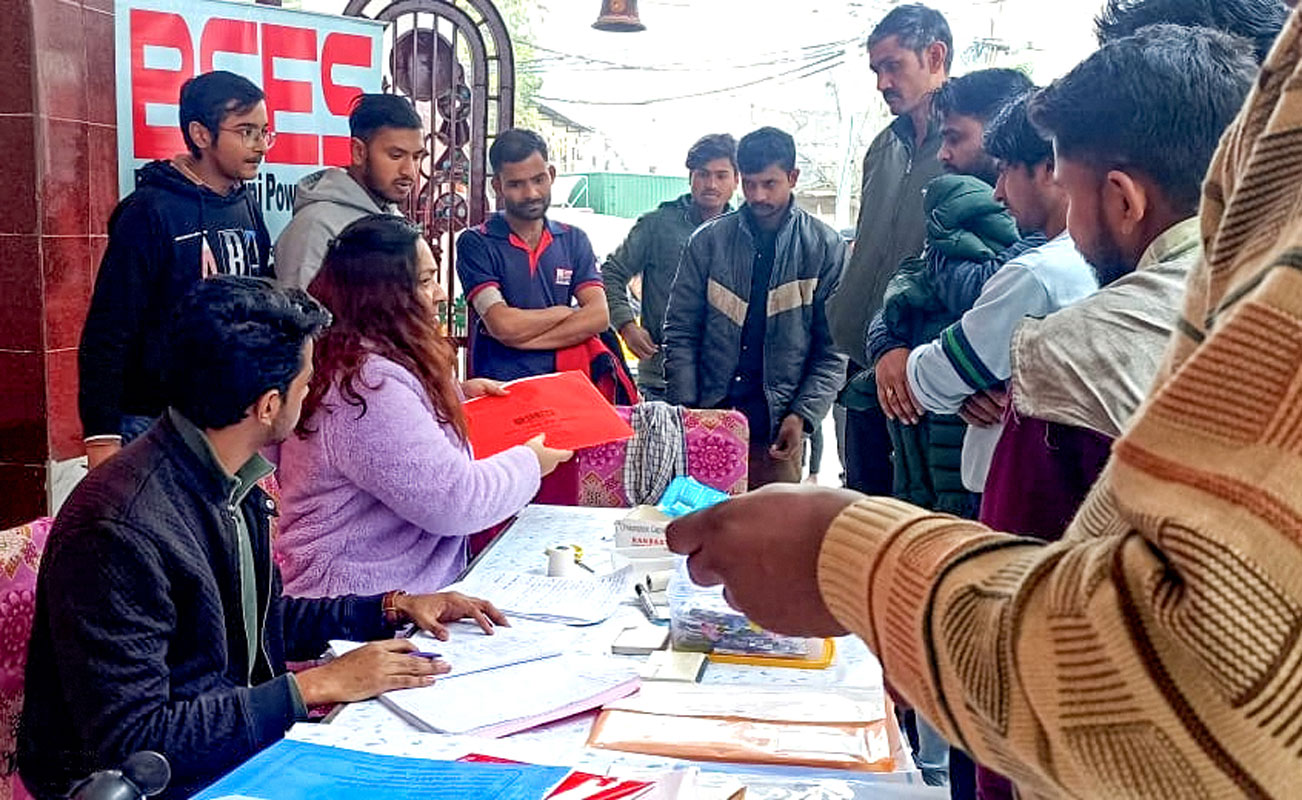Mega anti-tobacco campaign in Delhi
In a major health campaign, all the 27 Rotaractors at the RAC Shri Aurobindo College, RID 3011, are involved in Project Tamaacha to Tobacco (slap to tobacco) which is held in phases through five-day camps on the outskirts of Delhi. This year, they conducted the mega anti-tobacco campaign from October to March by holding awareness-cum-treatment camps at seven city suburbs — Old and New Seelampur, Sangam Vihar, Samalkha, Madangir, Jaitpur and Govindpuri.

Dr Sajeela Maini from Sir Ganga Ram Hospital, Delhi, examined and treated around 600 patients, rural people who were addicted to tobacco products like gutka, beedi and cigarette. “On the first day, we hold an awareness session in which the rural people were told about the dangers of consuming tobacco. From the second day onwards, Dr Sajeela will diagnose and treat patients. She also distributes free medicines,” says Himan Deka, project coordinator.
At least 6–7 Rotaractors will be there at the camp in rotation on all five days. They distribute pamphlets and flyers to visitors explaining to them the harmful effects of tobacco products, he says. The six-year-old anti-tobacco campaign is targeted at the rural families like farmers and artisans living on the periphery of Delhi. Earlier, the campaign was called Last Puff, but it got a new name and a brand identity, thanks to the mentorship from Dr Sajeela.
Project Rudhir (blood) aims at creating awareness on menstrual hygiene among girls in slum colonies. “We have distributed 12,000 sanitary napkins to 1,200 girls, each got two packs of five pads, so far this year. It is difficult to estimate the number of beneficiaries over the last seven years, but during Covid times our MHM campaign was disrupted,” recalls club president Sonakshi Arora. For the first time under this project, “we have started holding awareness sessions at three schools, covering around 150 students who were taught personal hygiene and managing periods in a healthy manner.”

Around 250 participants including Rotaractors, college students, NGO volunteers and the public came together for a walkathon under Project Beti 8.0, a flagship event on women’s empowerment. “Each year, we choose a different venue to flag off the walkathon and in April, we staged our rally from the north campus of Vishwavidyalaya, that houses many top universities,” says Sonakshi. The walkathon was followed by music and dance by Rotaractors which culminated in a flash mob. “We distributed over 100 pepper sprays to less privileged girls to protect themselves from stalkers and violent eve-teasers.”
Sonakshi is trying to find a sponsor for providing HPV vaccination to around 250 girls against cervical cancer and “I am confident of providing vaccine doses to girls soon.”
In the last week of April, Project Amal (hope) will hold five different events at different venues as part of community outreach. “Giving food packets to Zomato delivery boys, distributing ration kits to families in slum areas, putting up a juice stall at a busy location in summer to provide chill relief to commuters and pedestrians are some of the events we had finalised under Project Amal which is still being worked out.”
Club meeting
All the Rotaractors make it a point to attend their weekly club meeting. “Also our board members meet once a month to chalk out projects and do a quick brainstorming of our activity,” says Sonakshi. Out of the annual membership fee of ₹800 per head, around ₹500 goes to RI, ₹100 to the district fund and the balance ₹200 is used for club projects.
Doing her final year BA (English), she looks back at her three-year Rotaract journey and says, “it has been a rollercoaster ride with many ups and downs. But I enjoy being a Rotaractor as it taught me a lot about leadership skills and time management.” At present, Sonakshi has not given a thought about becoming a Rotarian. “It is too early for me to say anything about being in Rotary now,” she smiles. n
